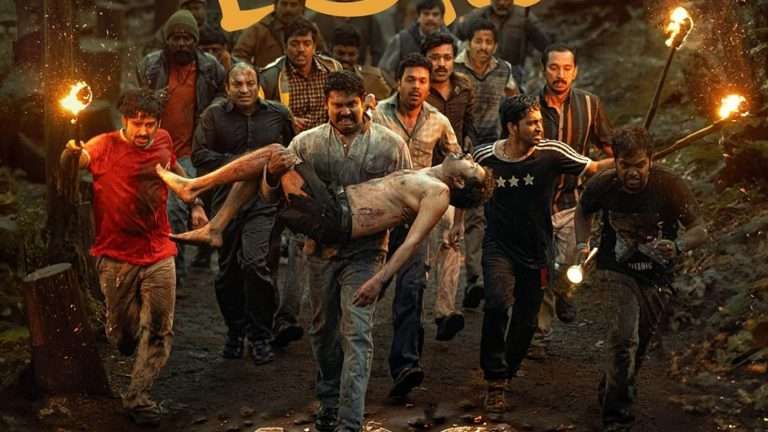Black Panther: Wakanda Forever (2022) Review: What we’ve seen lately is more and more comic book films’ increasing tendency to introduce a strong political undertone to their stories. This has been happening across studios and IP projects. While some attempts, such as 2021’s reboot for Suicide Squad, worked because of how organically woven it was into the film’s world, the recent attempt of “Black Adam” for introducing a similar angle came across more as a red-herring. Watching the sequel to 2018’s massively successful “Black Panther” made me think of what great avenue of potential the story had for embracing the more overtly political themes that are sprinkled in bits and pieces over here.
A nation entirely dominated by people of color known solely for its rich source of vibranium, an invulnerable metal with a wide range of supernatural powers, who refuses to export it? That in itself makes for a potent recipe of conflict for a sequel, thus, raising the stakes further. But “Black Panther: Wakanda Forever” is not an ordinary sequel; using the backdrop of the saddening real-life tragedy of Chadwick Boseman’s passing in 2020, the movie breaks the conventions of what you would expect from a sequel, let alone one from the MCU.
The movie begins on a somber note, with the shaky camera directly placing the movie’s characters in the same shoes as the audience. The opening credits, too, a continuum of images spanning across various films Boseman was a part of, form the “Marvel Studios” logo, deviating from the otherwise large octane openings of the other MCU films. Along with T’Challa’s family, we, as the audience, feel the weight of losing someone that always felt invisible. Thus, through its visceral opening, “Black Panther: Wakanda Forever” raises questions for its characters about what it feels like to have all your life-long traditional beliefs shaken to their core.
The Wakandan throne, soon after the undisclosed cause for T’Challa’s passing, is held by Queen Ramonda (Angela Bassett), mother to T’Challa and Shuri (Letitia Wright), a brilliant and witty scientist. As established in the earlier films, Shuri’s laboratory powers were Wakanda’s defense systems. But with the passing of Black Panther, Wakanda faces new threats from rivals, including ones like them, who assume it to be weakened.
Filling in the massive gap, Killmonger’s villain this time around is K’uk’ulkan, a.k.a. Namor (Tenoch Huerta Mejía), who seeks to wage a world war while demanding that Wakanda join forces with him against the colonizers. When the question of our heroes (now amidst the intense process of grieving) carrying different shades of grey is raised in the movie, the pacing submerges its emotional foundations underwater. Much of the emotional moments scattered throughout the screenplay shrug along the massive real-life tragedy looming over the film’s execution.
The idea of seeing characters from the world’s most powerful nation re-examine the idea of what being a ruler means while examining the potential of nobility weakening a leader, and their legacy is planted reasonably well throughout the movie’s first half. However, unlike the original, this sequel’s aesthetic elements appear merely decorative and lack a sense of space. The desire to delve deeper into exploring the mechanics of the world, especially in the parts that take us into the undersea kingdom of Talokan, is evidently missing.
After the past year’s entries such as “Eternals” and especially after this year’s “Thor: Love and Thunder,” it becomes crucial to ask what the MCU intends to do by hiring indie filmmakers when eventually most films made by them are held back by a sense of franchise obligation of sorts. Even something like “Ant-Man and the Wasp,” a sequel to the original, was helmed by a talented filmmaker whose distinctive artistry seemed crushed by the demands of franchise-building.
All that said, the parts that work in this sequel are due to Ryan Coogler’s profoundly respectful approach to tweaking the movie’s script without ever falling for the traps of settling for something less, well, noble. But the same visual and thematic cues from a young voice awestruck viewers back in 2018 feel much more reverse-engineered here.
The cinematography by Autumn Durald Arkapaws doesn’t extract much from the slowmos that Coogler injects, and the majority of the scenes shot in the dark lack a sense of establishing essential events that take place in the movie’s convoluted second half. More than that, the attempt at positioning the central female trio together doesn’t strike the full emotional and allegorical resonance the makers intended to, despite powerpack performances from all.
In some lesser hands, the task of disguising a high-budget 162- minute film that also serves as franchise building as a posthumous tribute to a late actor would’ve been translated disrespectfully. But of many things, “Black Panther: Wakanda Forever” is anything but that. Perhaps the film will garner a more profound meaning and respect if we live long enough to see the corporate executives recast and reboot older characters by bringing them back alive in the future phases, which at this point seems a likely possibility.



![Maska [2020] Netflix Review – Another predictable coming of age comedy that is sweet but tasteless](https://79468c92.delivery.rocketcdn.me/wp-content/uploads/2020/03/Maska-Netflix-Movie-768x403.jpg)
![Stuff and Dough [2001] Review – Fresh Oppurtunities, Same Dead-Ends](https://79468c92.delivery.rocketcdn.me/wp-content/uploads/2020/11/Stuff-and-Dough-2001-768x432.jpg)
![Sertania [2020] ´CIFF´ Review – A Symbolic and Experimental Western](https://79468c92.delivery.rocketcdn.me/wp-content/uploads/2020/10/Sertania-1-higonfilms-768x269.jpg)
![Do Not Hesitate [2021] – ‘Tribeca’ Review – An Anti-War Movie focusing on the ravages of war on the youth](https://79468c92.delivery.rocketcdn.me/wp-content/uploads/2021/06/Tribeca_Do-Not-Hesitate_1_1080p-768x432.png)
![Family Life [1971] Review: Life as an experiment](https://79468c92.delivery.rocketcdn.me/wp-content/uploads/2019/10/1e8be2d140c977b10e4eab7.png)